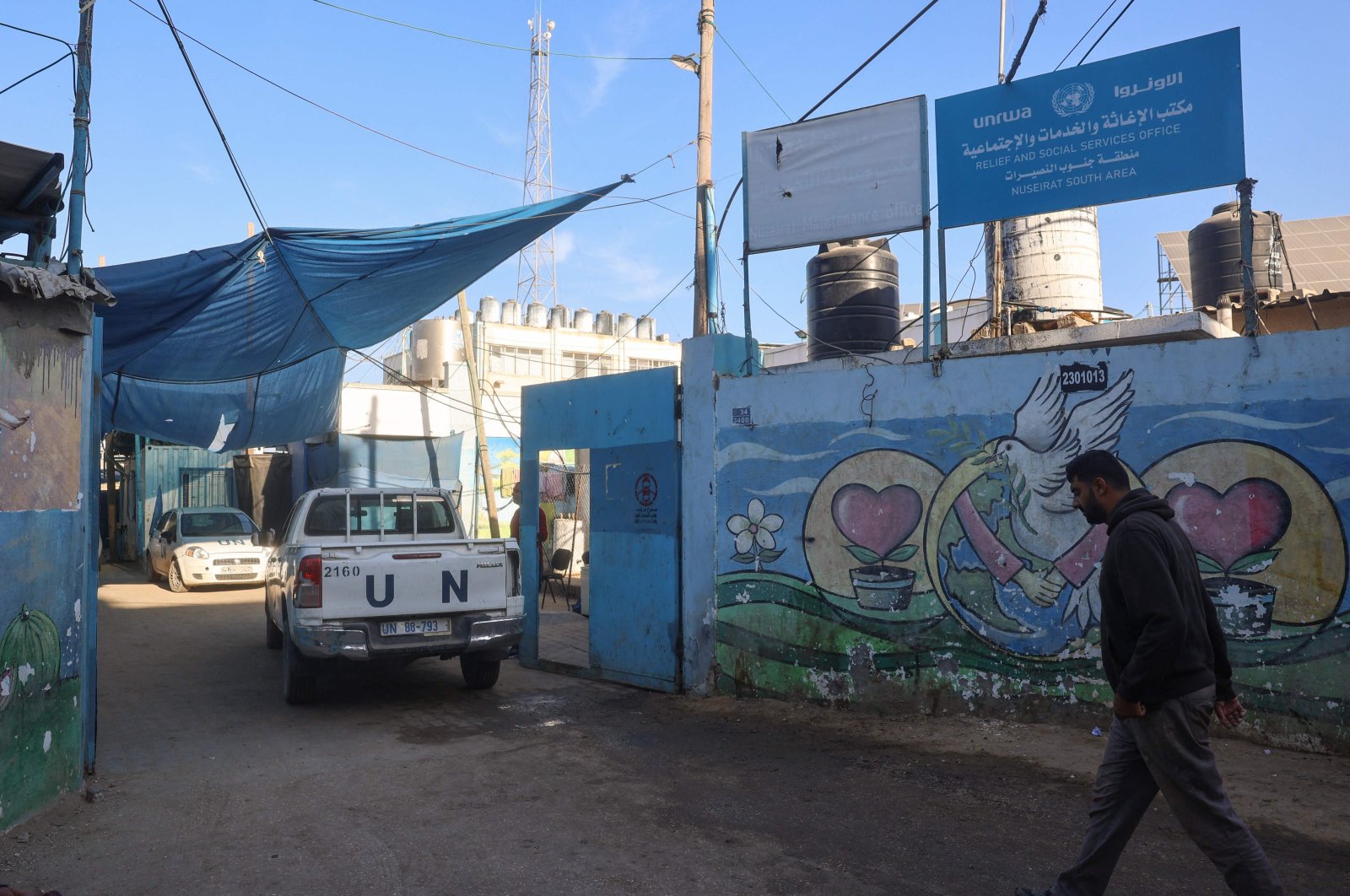
The U.N.'s refugee agency for Palestinians, which was banned by Israel this week despite outcry about the ongoing humanitarian crisis in Gaza, said it was working to keep people alive.
Despite international outcry, including from Washington, Israeli lawmakers on Monday overwhelmingly voted to bar the agency, UNRWA, from operating in Israel and east Jerusalem.
For more than seven decades, UNRWA has provided critical support to Palestinian refugees.
In recent months, the military has struck several UNRWA schools-turned-shelters, in blatant violation of international law.
UNRWA said 230 of its staff have been killed since the beginning of the war.
Jonathan Fowler, UNRWA's spokesman in Jerusalem, called the agency the backbone of humanitarian work in the Palestinian territories, especially in Gaza.
"UNRWA is irreplaceable, UNRWA is essential. That remains a fact, whatever the legislation that was passed yesterday," Fowler, who called the law "an outrage," told AFP in an interview at the agency's compound in east Jerusalem.
With around 18,000 staff in the occupied West Bank and Gaza, including 13,000 education staff and 1,500 healthcare workers, UNRWA has delivered vital aid since 1949.
Fowler said UNRWA hopes the decision will be rescinded and is "not in the mindset" of thinking of alternatives.
'We are the backbone'
"It is on the international community that if this moves forward, and on the Israeli authorities as members of the international community, to say what the Plan B is," he said.
Unlike other U.N. agencies, which rely on external partners, UNRWA directly employs teachers and healthcare staff of its own, including 13,000 staff in Gaza, a large majority of them Palestinian.
"The entire U.N. system and other international players rely on UNRWA's logistical networks, on UNRWA's staff to do what is necessary to try to keep the population of Gaza alive. We are the backbone," said Fowler.
Jens Elder, a spokesman for the U.N. children's agency, UNICEF, which is taking part in a mass vaccination campaign in Gaza alongside UNRWA, said: "If UNRWA is unable to operate, it'd likely see the collapse of the humanitarian system in Gaza."
UNICEF would be "unable to distribute life-saving supplies," he added.
Tarik Jasarevic, spokesman for the World Health Organization said: "3,000 of their staff are health workers, it's really unmatched, it couldn't be matched by any agency, including WHO."
Asked whether the Palestinian Authority could take over part of UNRWA's mandate in the West Bank, Fowler pointed to the fact that the agency is intended to be folded into Palestinian institutions once "a just and lasting solution to the Palestinian refugee situation" is achieved.
But "we are nowhere near that situation now," he said.
'Very, very serious problem'
The Israeli law would also bar UNRWA from communicating and coordinating with Israeli authorities, effectively blocking its operations in the West Bank and Gaza.
"On the coordination side, this is a very, very serious problem," Fowler said.
UNRWA depends on communication with the Israeli army or COGAT, the defense ministry body that manages civilian affairs in the Palestinian territories, to facilitate essential operations like staff movement and supply entry.
He said "the ability to move around, the ability to do our work in relative safety, risks being severely hampered by the possibility of not being able to do de-confliction anymore."
On a wider scale, he warned about the global implications for the UN's work and the multilateral order.
"This is a blow against multilateralism", he said, adding "this is not the only place in the world where potentially a government may wish to do away with an inconvenient U.N. organization, one that it deems to be inconvenient."
Fowler said that it would take time before all the effects of the law, whether intended or not, become apparent.
"It's kind of a Pandora's box that's been opened here, and that's what's extremely troubling."
